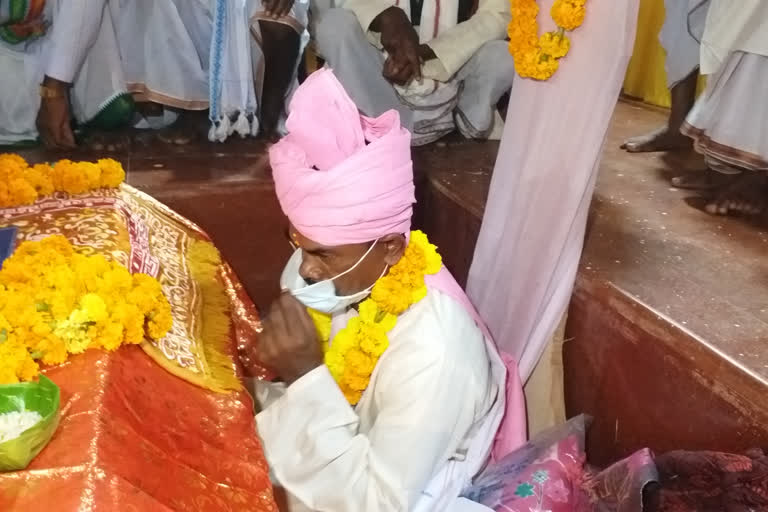Jagdalpur: The second most important ceremony of the renowned Bastar Dussehra festival, Jogi Baithai concluded on Saturday.
According to this tradition, which has been going on for almost 600 years, Bhagat Ram of Amabal village was brought to the Sirahasar Bhavan in the city after worshipping Mavali Devi. Later the Jogi was made to sit in the pit dug inside the building for nine days.
In line with this tradition, every year a young man of a particular caste observes a strict fast for nine days, sometimes even without drinking water, during Navratri every year and performs austerity at a particular place in Sirhasar Bhawan.
The main purpose of this fast is to ensure the peaceful and successful conduct of the Dussehra festival. This year the Jogi also prayed to mother Danteshwari to end the corona pandemic.
Read Defying lockdown norms, hundreds attend Ganga Dussehra festival in Farraukhabad
The term Jogi in the Jogi Bethai ritual means Yogi and there’s a legend associated with this ritual. According to popular belief, years ago, a young man from Halba community sat on a fast near the royal palace in Jagdalpur during the nine days of Dussehra.
When the news reached the then king that a person has been sitting in silence without eating anything, the Maharaja approached the yogi and asked him the reason for his penance. The young Jogi replied that he was meditating to ensure the Dussehra festival was conducted in a smooth and peaceful manner.
Hearing this the king helped carry on this tradition by constructing the Sirhasar Bhavan for the yogi at some distance from the palace. Every year, a young man of Halba community turns Jogi and sits in austerity for 9 days.
This year, Bhagatram, a resident of bade Amabal village, has embarked on an austere fast and become a Jogi with the blessings of Danteshwari Mai and deities in Sirhasar Bhawan in line with the 600-year-old tradition. Bhagatram said that he has been doing penance for the last 13 years to ensure peaceful conduct of Bastar Dussehra festival.
The Jogi further stated that in the midst of the ongoing Corona crisis, he should be offered some sort of financial help by the government. Significantly, during this ritual, a large number of devotees and tourists visit yearly to witness this ceremony.
But this year due to the Covid crisis, only members of the Dussehra committee, Majhi Chalki and officers of the district administration were present.



